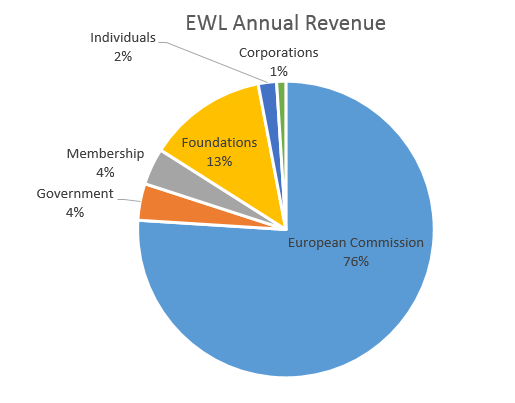[Brussels, 01 December 2010] On the occasion of World Aids Day, a coalition of European NGOs have issued a statement calling for a human rights approach to HIV prevention.
HIV and Human Rights – Statement for WAD 2010
‘The impact of criminalizing HIV transmission’
From the UK to the USA, from Sweden to Australia, criminal laws are increasingly being used to prosecute HIV transmission or exposure, even if evidence shows that what we really need is increased investment in HIV prevention, treatment, care and support, and the elimination of stigma and discrimination – not criminalization – as the effective way to address the epidemic.
Jan Albert, Professor of Infectious Diseases at the Karolinska Institute, Sweden, says:
“Since I’ve been an expert witness in court trials, my personal opinion regarding people living with the virus has changed. In my experience the accused are seldom ‘criminals’. There are many reasons for neglecting to inform sexual partners about HIV status, including denial. None, or very few, have had the intent to transmit HIV, which is how these acts often are described by the media. There will be more and more HIV infected people living in Sweden, and the rest of the world. Do we want to turn a proportion of our population into potential criminals every time they have sex?”
Criminalizing the transmission of HIV is actually undermining our efforts to prevent the spread of HIV. Fear of prosecution may deter people from coming forward for testing and counselling, and from disclosing their status to sexual partners and advising those partners to have an HIV test; policing the bedroom effectively drives the problem underground’ says Yusef Azad, from the UK’s NAT, co-Chair of the European Commission Civil Society Forum on HIV).
- In some countries, such as Canada and the USA, laws have been used to send mothers to prison for transmitting HIV to their child.
- In Sweden a mother has been separated from her children and sent to jail for not disclosing her HIV status, even if she did not transmit HIV to anyone
- In Portugal a cook was fired because he is HIV positive even though medical expert advice ruled out the possibility of onward transmission
- In Greece a blood donor was sentenced to imprisonment for transmitting a girl and a man with HIV even if he did not know about his status when he made the donation.
Though data is hard to come by with regard to the sex, ethnic background and legal status of those prosecuted in Europe, it appears that a substantial number are male, often immigrants and from marginalized groups, such as men who have sex with men, sex workers and people who use drugs, adds Henrik Arildsen, Chairman of HIVEurope.
In recent years, we have seen substantial evidence that prosecutions for HIV transmission have been on the increase across Europe – most noticeably in a series of cases in Finland, the Netherlands, Sweden, and the United Kingdom. At the same time, HIV incidence and prevalence has continued to increase, particularly in Eastern Europe and Central Asia. ‘
In light of this and the sensationalism reported in the media of HIV transmission cases, there is major concern that countries might increasingly choose to approve specific criminal legislation to prosecute people who are HIV positive, leading to the infringement of the human rights of people living with HIV or AIDS fueling discrimination and stigma PLWHA’ adds Luis Mendão, co-chair of the Civil Society Forum on HIV.
Irene Donadio, member of the CSF and Advocacy Officer at IPPF EN explains how important the effect criminal laws on HIV transmission have on people’s lives. The International Planned Parenthood has released today an amaizing campaign video incalled Behind Bars (embargoed till WAD) which illustrates the personal and professional dilemmas faced by doctors, lawyers, researchers and advocates. We invite everyone and especially governments that criminalize HIV to look at it. www.ippf.org and http://bit.ly/criminalization
Criminalization of people living with HIV is against a human rights approach towards the eradication of HIV/AIDS. ‘The EU has a role to play says the organizer of today’s hearing of the subcommittee on Human Rights of the European Parliament Arben FETAI, EU Policy Advisor of Stop AIDS Alliance and Co-chair of the CONCORD HIV/AIDS Working Group)
We, as civil society, urge the member states of the European Union as well as all countries which signed the European Convention of Human Rights to respect the rights of people living with HIV. Stigma, discrimination and prosecution only undermine public health. We hope that the Belgian Presidency of the EU will work with the Trio of EU presidencies to ensure that human rights are the heart of Europe’s policies on HIV.
SIGNATORIES
International Planned Parenthood Federation European Network, European Aids Treatment Group, Aids Action Europe, HivEurope, Stop Aids Alliance,TAMPEP, the European Network for HIV/STI Prevention and Health Promotion among Migrant Sex Workers, NAT, SENSOA, GAT – Grupo Português de Activistas sobre Tratamentos de VIH/SIDA, Belarussian AIDS network, Hiv-Danmark, Hispanosida, Positive Living Association, Turkey, Deutsche AIDS-Hilfe, ILGA-Europe – European Region of the International Lesbian, Gay, Bisexual, Trans and Intersex Association, Eurasian Harm Reduction Network (EHRN)
References:
The USA and Canada are leading the world in terms of number of prosecutions and convictions of HIV transmission, with more than 300 convictions between them. Sweden leads Europe with at least 38 known prosecutions.In a 2004 survey, the Global Network of People Living with HIV/AIDS found that in Finland, Sweden and Slovakia, about 0.5% to 1% of all people reported to be living with HIV/AIDS had been prosecuted for alleged intentional or “negligent” transmission of HIV. Criminalization of HIV transmission in Europe: a rapid scan of the laws and rates of prosecution for HIV transmission within signatory States of the European Convention of Human Rights. http://www.gnpplus.net/criminalisation/rapidscan.pdf



